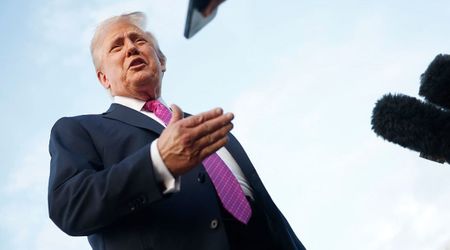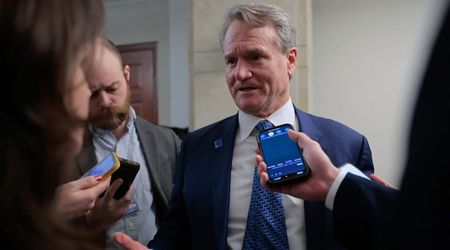Mexican Cartel Members are now Impersonating US Officials to Defraud Americans; Here's What They Do

Apart from drug trafficking and gang violence, Mexican cartels have also been involved in financial fraud for money laundering. But it seems now these criminal organizations are also pulling off scams to swindle money by using government institutions as a cover. In a shocking revelation, US authorities have exposed the audacious tactics employed by the Jalisco drug cartel in defrauding elderly Americans through timeshare scams. The cartel, notorious for its violent operations and control over various criminal enterprises, showed another level of audacity by posing as officials from the US Treasury Department. This elaborate scheme, orchestrated through call centers, has not only duped over 600 Americans but has also revealed a disturbing trend of criminals impersonating government authorities to carry out their fraudulent activities.

How the Jalisco cartel exploited call centers
At the heart of this criminal enterprise lies an elaborate timeshare fraud scheme executed through call centers controlled by the Jalisco cartel. These call centers, initially believed to be ordinary facilities, were strategically utilized to promote fake offers to unsuspecting Americans. About 600 victims have collectively lost an estimated $40 million to the cartel's deceptive practices.
The modus operandi involved enticing individuals by manipulating them into believing that lucrative deals awaited them in exchange for their timeshare properties. Once lured in, victims found themselves ensnared in a web of deceit orchestrated by the cartel, leaving them financially devastated.
Cartel members posing as US treasury officials
In a shocking twist to the already elaborate scheme, it has come to light that the Jalisco cartel's operators went a step further by impersonating officials from the US Treasury Department. The Office of Foreign Assets Control (OFAC), responsible for combating illicit funds and money laundering, uncovered instances where the criminals claimed to represent OFAC itself and told victims that their funds were frozen by the agency.
The criminals would then demand payments in exchange for the release of the purportedly blocked funds, exploiting the victims' trust in the government.

OFAC's pursuit of justice and sanctions against cartel-linked entities
In response to the cartel's audacious actions, the Office of Foreign Assets Control (OFAC) has taken proactive measures to pursue justice and disrupt the criminal enterprise. On Thursday, OFAC announced a new round of sanctions targeting three Mexican citizens and 13 companies linked to the Jalisco cartel, officially known as the CJNG.
The government's swift response shows its determination to safeguard American citizens from falling victim to these criminal schemes. By targeting the financial networks associated with the cartel, authorities aim to dismantle the criminal apparatus responsible for orchestrating timeshare fraud on such a grand scale.
CJNG's ruthless tactics and targeting of elderly citizens
US Treasury Secretary Janet L. Yellen has issued a stern warning regarding the Jalisco cartel's involvement in timeshare fraud. Yellen highlighted the cartel's use of extreme violence and intimidation to control the timeshare network, emphasizing the particularly vulnerable position of elderly citizens. The ruthless tactics employed by the CJNG not only defraud victims of their life savings but also perpetuate a climate of fear, since call center workers are killed for attempting to leave their employment with the cartel.
As the government intensifies its efforts to combat the Jalisco cartel's influence, the focus remains on protecting the most vulnerable members of society and ensuring that justice prevails in the face of such audacious criminal activities.

Need for vigilance against sophisticated criminal groups
The revelation of the Jalisco cartel's involvement in timeshare fraud, coupled with the impersonation of US officials, points at the evolving sophistication of criminal enterprises. As authorities continue to crack down on these activities, it is imperative for individuals to remain vigilant and skeptical of unsolicited offers.





















